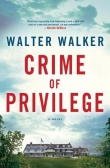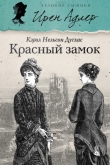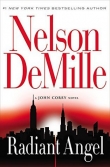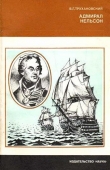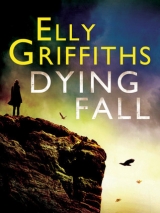
Текст книги "Dying Fall"
Автор книги: Elly Griffiths
Соавторы: Elly Griffiths
Жанр:
Триллеры
сообщить о нарушении
Текущая страница: 4 (всего у книги 20 страниц)
CHAPTER 7
As they turn onto the motorway, a huge sign above them points the way unambiguously to The North. Ruth, rather stressed from following Cathbad’s directions (‘I think it’s this way– Oh, look at that bird! Is it a buzzard?’), views it with relief. At least this must mean that they’re going the right way. All the same there is something, to her, slightly chilling about the wording. She remembers Dan’s letter with its reference to the ‘frozen and inhospitable north’. She is going into alien territory, and for a moment she thinks she understands how the Roman legions must have felt, leaving the sunny comfort of Italy and travelling northwards to the barbarous lands of the Anglo-Saxons.
It is July 29th and, as Ruth had predicted, the good weather has broken and rain is forecast. Ruth, Cathbad and Kate are on their way to Lytham. When they stopped for petrol outside King’s Lynn, Ruth thought how much they must look like a normal, nuclear family. Cathbad, in jeans with his greying hair in a ponytail (no cloak – thank God), could be any hippyish dad, siphoning unleaded into the battered family car. Ruth, coping with a fretful Kate and buying sweets for the journey, was aware that she looked every inch the frazzled mum. This must also have been the vision in Max’s head when he had said, ‘Everyone will think you’re a couple, you and Cathbad.’ It had been an odd thing for Max to say. For one thing, he prides himself on not caring what people think. For another, he knows that Ruth and Cathbad are just friends, he even knows about Judy. And, for another … well, he hasn’t any right to comment, has he?
For the last few weeks, Ruth has been thinking a lot about her relationship with Max. In July, after term had finished, Max came down for a week and they hired a boat on the Broads. Having nearly been murdered on a boat once, Ruth is not that keen on sailing as a pastime, but despite being involved in the same incident Max is a keen waterman. And it had been lovely, drifting through the flat Norfolk fields with the sky high and blue above them, Max at the helm, Kate shouting out with pleasure whenever she saw a swan, or a cormorant, or another boat – or anything really. That had been the only problem; Kate had been so excited that Ruth had had to keep hold of her all the time. She had been fitted with her own cute baby life-jacket, but even so Ruth wasn’t taking any chances. By evening, as they moored under willow trees or in shallow backwaters, Ruth was exhausted, far too tired (and conscious of Kate only a few feet away) to make love in the narrow double bed.
On their last evening, as they drifted along the Wherryman’s Way, Max had said, ‘Kate’s had a great time, hasn’t she?’
‘She’s loved it,’ said Ruth. Max had bought Kate a miniature captain’s cap and she was sitting on his lap with her hands firmly on the helm. It would make a great picture, if only Ruth could remember where she’d put her phone or camera.
Max turned to Ruth, who was sitting on the bench seat behind him.
‘Do you worry about her being an only child?’
Ruth had been surprised. She had been so shocked to have a baby at all that she had never considered Kate’s single-child status. Of course, in theory she had two half-sisters, but in reality it was just the two of them – Ruth and Kate. Was there something wrong with that?
‘No,’ she said. ‘It’s not as if I have much choice.’
‘But you do,’ Max had said, turning back to Kate. ‘We could have a baby.’
Now, filtering into the motorway with all the other families, hot and fractious at the beginning of the summer holidays, Ruth thinks about Max’s incredible statement. She has honestly never thought about having another baby. Getting pregnant with Kate had seemed like a miracle and, like all miracles, it was a one-off, inconvenient as well as wonderful. She has always thought that Kate was her one chance at motherhood – a chance she once thought she would never have. But she is only forty-two, it’s not impossible that she should have another child (though she ought to get a move on if she’s considering it). She thinks back to her fantasy family on the beach at Blackpool. Is it possible to imagine a baby next to a toddler Kate? A baby with Max’s curly hair? Would Max be in the fantasy too? He didn’t mention marriage or even living together. In fact, after dropping his bombshell, he had never mentioned the subject again, had not even waited for Ruth’s reply (just as well as she had no intention of giving one). They had parted on easy, affectionate terms, Max saying that he would try to come up to Lytham for the second week of Ruth’s holiday. Now she wonders if she had imagined the whole thing. Does Max really want her to have his baby? He doesn’t have children, maybe he is just desperate to be a father. But, if so, why not pick on some fertile twenty-something graduate student? Max is an attractive man, it shouldn’t be too difficult. Why bother with her – overweight, introverted, an expert on old bones?
‘Kate’s asleep,’ says Cathbad, looking over his shoulder.
‘Good,’ says Ruth. Kate had been grizzling quietly for about half an hour. They made an early start but traffic has been bad. It’s now midday and they are only just past Doncaster.
‘I’ll take over driving when we stop for lunch,’ says Cathbad.
Ruth says nothing. She is not sure that she trusts Kate’s life – or her own – to Cathbad’s driving.
She is not sure, even now, why she decided to embark on this long and potentially tedious journey. Partly it was Phil’s breezily dismissive attitude to the Ribchester bones. And she still remembers his crack about ‘original research’. If Dan really had made a momentous discovery, then she could be the one to bring it to light, thus fulfilling her debt to her friend and making her reputation in the process. Phil’s comment had underlined the feeling that her career is going nowhere; she has published nothing in the last few years, not even an article or a review. She really needs something big, and if Dan had found the grave of King Arthur, that could be the biggest archaeological find of the decade.
There is, of course, the mysterious person who wants to stop her coming to Pendle. Ruth had thought hard about the fact that she could be placing herself, and, more importantly, Kate, in danger. But, deep down, she can’t imagine that Dan really was murdered because of his discovery. Things like that just don’t happen to archaeologists. Besides, she’ll never let Kate near the university. Cathbad has said that he’ll look after her while Ruth does her investigations. He can take her to the beach, for rides on donkeys and carousels. It’ll all be perfectly safe.
*
When they stop at the Welcome Break in Preston, Kate is awake and in tearing spirits. She eats most of a McDonald’s Happy Meal and wants endless goes on a Thomas the Tank Engine ride. Cathbad and Ruth watch her, listening to the maddeningly repetitive theme tune and drinking giant frothy cups of coffee. Ruth looks at her watch. She has told Clayton Henry’s colleague, a woman called Andrea Vickers, that they will be at the cottage some time after three. Even with Cathbad’s eccentric driving, they will be at Lytham before two. What can they do while they wait?
Unsurprisingly, Cathbad has an idea. ‘Why don’t we pop in to see Pendragon? It’s not far from here, just along the A59.’
Ruth quite likes the idea. She could do with some fresh air and doesn’t feel like turning up on Andrea Vickers’ doorstep on the dot of three. If she’s anything like Ruth, she’ll still be changing the sheets.
‘Can we ring him first?’ she asks. ‘I don’t want to turn up out of the blue.’
‘He doesn’t have a phone.’
Of course he doesn’t.
*
As they turn off the A59 the world changes. They pass through a stunningly pretty village with a stream running down the middle. The pub is called The Swan With Two Necks. Ruth, looking round, sees a goat standing in the middle of the road – there’s not a single other living soul to be seen. The road snakes slowly upwards, past crumbling dry-stone walls and the occasional ruined farm building. In the distance is a vast hill, its summit wreathed in cloud. It’s a curious shape, like a long flat table. Ruth thinks of the Stone Table in the Narnia books. As far as she remembers, something very nasty happened on that table.
‘Is that Pendle Hill?’ she asks.
‘Yes,’ says Cathbad. ‘There are lots of legends about it. George Fox had a vision of God’s love on top of Pendle Hill. That’s where Quakerism started.’
Ruth quite likes Quakers – compared to other religions anyway – but the high bare hill doesn’t suggest divine love to her. Quite the opposite. It’s a sinister, lowering presence, black against the sky. The clouds leave shadows on the grass and in the distance Ruth sees a gleam of dark water. The foreground, too, is full of white cloud-like shapes.
‘Sheep!’ shouts Kate. ‘Sheep! Sheep!’
‘Yes, sheep,’ says Ruth. ‘And nothing else. Why’s it called a forest? There aren’t many trees here.’
‘I’m not sure,’ says Cathbad, shifting down through the gears. Ruth’s aged Renault is finding the gradient a challenge. ‘I think in ancient times a forest just meant a place where the king used to hunt.’
‘It’s beautiful,’ says Ruth, ‘but it’s a bit spooky.’
‘There’s old magic here,’ says Cathbad. ‘Have you heard of the Pendle Witches?’
‘I don’t think so.’
‘They were a group of women at the beginning of the seventeenth century. There were lots of rumours about them – that they had familiars, that they made clay images and cursed people, made animals die and killed people’s children. Anyway, they were accused of witchcraft and ten of them were executed. They all lived around here, in the hills and in the forest. Pendragon actually lives in a cottage that was owned by one of the witches.’
Ruth can see why this would appeal to a druid but she doesn’t think that the subject matter is very suitable for Kate. Still, with any luck she won’t have understood. Ruth looks round at her daughter, who is humming quietly to herself.
‘OK, Kate?’
‘Sheep,’ says Kate.
There are more and more sheep in their way and Cathbad is constantly stopping to let them pass. The sheep don’t hurry either, gazing at them balefully out of their onyx eyes and meandering slowly in front of the car, woolly nether-regions matted with mud (or worse).
‘Dirty sheeps,’ says Kate.
‘Sheep,’ corrects Ruth.
‘But why?’ says Cathbad maddeningly. ‘Why isn’t it sheeps? I’m going to say sheeps from now on.’
The road has narrowed considerably, and although they are still climbing they’re now surrounded by high grass banks. For Ruth it’s the worst of both worlds: she feels claustrophobic and agoraphobic at the same time. She wonders why she, who loves the lonely marshes, should feel so threatened by these lowering hills. Perhaps it’s the absence of the sea. When you’ve got used to being able to see as far as you can, it feels strange to be hemmed in on all sides by grassland and trees – and wall-eyed sheep.
They stop at a crossroads while Cathbad consults the map. Ruth reads the place names out loud: ‘Fence, Stump Hall Road, Crow Trees Brow. Weird names.’
‘The magistrate who tried the Pendle Witches came from Fence,’ says Cathbad. ‘It must have been quite an important place once. I think it’s this way.’
He takes the smallest and least prepossessing of the roads. The car crawls between dark hedgerows. The rain, which has been threatening all day, begins to fall. Kate starts to cry.
‘Look, Kate,’ says Ruth desperately. ‘Sheeps!’
But there are suddenly no sheep. When they turn the corner they are in the cleft of a sharply sloping valley and there are no animals of any kind to be seen.
‘Look,’ says Cathbad, pointing.
Halfway up the hill is a small, white house. A flickering light shows in one of the windows.
‘Dame Alice’s Cottage,’ he says.
‘What?’ says Ruth.
‘Dame Alice’s Cottage. That’s what Pendragon’s house is called. Dame Alice must have been one of the witches.’
It isn’t the cosiest house name that Ruth had ever heard, but right now she’d do anything to get out of the car, give Kate a cuddle, go to the loo and have a cup of tea. She looks up at the isolated little cottage.
‘Does the road go that far?’ she says.
‘We can park by the gate. We’ll have to walk across the field.’
Ruth lifts Kate out of her car seat and, as she is still inclined to be whiny, carries her across the uneven grass. The rain is heavier now and Ruth hasn’t unpacked her cagoule. Cathbad strides beside them, looking around with every appearance of pleasure.
‘Wonderful place. Wonderful energies.’
As far as Ruth is concerned, it can keep its energies to itself. She’ll never be horrible about Norfolk again.
‘Cheer up, Kate,’ she says. ‘We’re going to see a nice man and have a cup of tea.’
‘Stop!’ shouts a voice. ‘Or I’ll shoot.’
Ruth looks up and sees a white-bearded figure brandishing a rifle. As they stop and stare at him, a pit-bull terrier runs towards them, barking hysterically.
CHAPTER 8
The dog makes straight for them, teeth bared. Ruth presses Kate against her shoulder and tries to think of everything she’s ever heard about pit bulls. They go for the throat, when they bite you they never let you go, if you run they chase you … She turns, shielding Kate with her body, trying not to think about that woman in France who had her face bitten off. Then she is aware that Cathbad is lying on the grass next to her. Oh God, the devil dog is savaging Cathbad. What should she do? She can’t put Kate down and, anyway, how can she fight off a trained killer, maddened by the smell of blood? Then she realises that Cathbad is, in fact, embracing the devil dog, pulling its ears, even kissing it between its wide-apart eyes.
‘Hello, Thing. How are you, boy? There’s a good dog.’
‘Dog,’ comes Kate’s muffled voice.
‘Yes,’ says Ruth, ‘dog.’
The man with the gun is now running towards them though he has, mercifully, lowered his weapon.
‘Cathbad? Is that you?’
Cathbad gets to his feet. ‘Call this a welcome, Pendragon, you miserable sod.’
Pendragon puts the gun on the grass and, with almost a sob, rushes forward to embrace Cathbad. The two men stand, entwined, as the dog frolics around them. Cathbad is tall but Pendragon is even taller, a huge Father Christmas of a man, dressed in a dirty army pullover and jeans. His beard reaches to his waist and snow-white hair cascades down his back. The dog is also white, with a pinkish snout and merry, dark eyes. He comes over now to investigate Ruth.
‘Want dog,’ says Kate, but Ruth doesn’t put her down. She still can’t forget stories about these dogs savaging children and, besides, there is a lethal weapon a few feet away.
Pendragon finally releases Cathbad and wipes his eyes on his jumper.
‘Pen,’ says Cathbad, ‘I’d like you to meet some friends of mine, Ruth and Kate.’
To Ruth’s surprise, she too gets a hug, Pendragon wrapping his arms with ease around both her and Kate. He smells of wood smoke.
‘Welcome,’ he says. ‘Welcome to my hearth.’
Cathbad makes an odd little bow in return. ‘What’s with the firearms?’ he asks.
Pendragon strides over to the gun and picks it up. ‘Airgun,’ he says, ‘not loaded.’
‘Natives not friendly then?’
‘It’s a long story,’ says Pendragon. ‘Come inside. I’ll make some herbal tea.’
*
The cottage is low-ceilinged with bumpy, plaster walls. Pendragon has to stoop to cross the threshold, which makes him look like an adult in a child’s playhouse. The door opens onto the main room, which smells of herbs and smoke. There is a huge fireplace with little iron seats on either side, a wooden settle and what Ruth instantly recognises as a version of Cathbad’s wizard’s chair. When she makes her urgent trip to the loo, she notices shells hanging from the roof like one of Cathbad’s dream-catchers. Druid interior decorating.
When she returns, Kate is playing happily with a pile of little wooden dolls. As Ruth enters the room, she hears Cathbad saying, ‘… not my child, not biologically anyhow.’ Clearly druids are not immune to nosiness. The white dog is sitting next to Kate, tail wagging noisily on the wooden floor. Pendragon sees Ruth’s glance.
‘Bull terriers are actually very good with children,’ he says. ‘They used to be known as nanny dogs.’
That’s not what the headlines say, thinks Ruth, but the dog does seem amiable enough. He had a jolly, piratical look with a black patch over one eye. She pats him and he leans against her, panting.
Pendragon makes herbal tea that tastes of wood shavings. He also offers home-made bread and butter. Despite having eaten a burger for lunch, Ruth tucks in. She thinks she could get to like it in Dame Alice’s Cottage. It’s certainly very cosy in the main room with the oil lamps lit and the rain outside. The fire is smouldering gently and the dog is now sleeping in front of it, paws twitching.
‘What’s his name?’ asks Ruth, indicating the dog. She heard Cathbad refer to it as Thing, which is typical. It’s rare for Cathbad to call any creature by their given name. He usually refers to Kate as Hecate and has been known to call Ruth ‘Ruthie’, an appellation which only Erik was allowed to use.
But Pendragon’s answer surprises her. ‘He’s called Thing,’ he says with a grin. ‘Shall I tell you why?’
Cathbad smiles as if he knows the answer and Pendragon assumes his storyteller’s pose, leaning back in the wizard’s chair, eyes half shut.
‘Four hundred years ago,’ he says, ‘this house was owned by a wise woman. Her name was Alice Barley, Dame Alice. She was the person you went to if you needed a spell to make your sick child well or to help your wife conceive. She was full of ancient wisdom and lore. For many years she helped the people in these hills.’ He looks at the three faces turned towards him, even Kate is listening intently. ‘But as time went on, people turned against her. There was some dispute about land. One family in particular had a grudge against Alice. They went to the magistrate and claimed that Alice had put a spell on their child, who subsequently died. They said that Alice boasted that she had a familiar – a Thing – who did her bidding. They said that Alice did not take Communion at the church; she saved the holy bread for her Thing. It was said that the Thing could take the form of a dog or a human man. It was said that Alice lay with the Thing and that she suckled it – its teeth, it was claimed, had left a mark on her belly. The Devil’s mark. Alice was accused of witchcraft. She refused to defend herself, saying only that the Great Mother would protect her. Those words probably signed her death warrant. She was hanged the next day.’
There is a silence. The dog – Thing – moans in his sleep.
‘So you called your dog after Dame Alice’s familiar?’ says Ruth.
‘Yes.’ Pendragon leans over to pat the animal’s head. ‘He’s my familiar, my companion.’
‘Do you see Dame Alice?’ asks Cathbad in a matter-of-fact voice, just as if he’s asking if he sees the postman.
‘No,’ says Pendragon, rather regretfully. ‘I don’t see her but I feel her presence. Sometimes I leave gifts for her – hops, apples, corn dollies. The offerings are always gone in the morning. Sometimes I smell her herbal infusions. Once, when I was troubled with headaches, I went and lay in what had been her herb garden. I slept the night there, and when I woke the headache had gone, never to return.’
And you had rheumatism instead, thinks Ruth. As for the apples and corn dollies, she suspects the local fox. There’s a fox in her garden in Norfolk that steals her wellingtons if she leaves them out on the back step.
‘Thing sees her, I think,’ says Pendragon. ‘Sometimes he’ll look up, staring straight past me, tail wagging in recognition.’
Despite herself, Ruth shivers. She looks at the sleeping dog who, thankfully, does not look up, ears pricked, to greet his ghostly mistress.
‘So, why the gun?’ asks Cathbad, helping himself to another hunk of bread. ‘You seemed pretty scared when we arrived.’
‘It’s a long story,’ Pendragon says again. But, unlike the Dame Alice story, this does not seem to be a tale he is inclined to tell. Instead he drops down on his knees next to Kate. ‘Do you like those dolls, Kate?’ He looks up at Ruth. ‘I found them in the house, under one of the floorboards. I think they belonged to Dame Alice. One of the stories told against her was that she made wooden effigies of her enemies and then burnt them.’
Ruth looks at her daughter playing happily on the floor with the voodoo dolls. Next to her, the devil dog sleeps on.
*
‘Harry Nelson!’
The large man behind the desk gets up, arms outstretched. The two men don’t actually embrace – the desk is in the way for one thing – but they exchange a hearty handshake.
‘Sandy Macleod! How long has it been?’
‘Too long. But you don’t look a day older.’
‘I feel a hundred years older,’ says Nelson, sinking into a chair. It feels wrong to be this side of the desk but it’s great to be with Blackpool CID again. Bonny Street Station hasn’t changed a bit: there’s still the blue light outside the door, still the rather grim Victorian brickwork, still what looks like the same graffiti outside, ‘Pigs Go Home’. Sandy himself, though balder and fatter, looks much the same. He has a lugubrious, rubbery face, like an old-style music-hall comedian. Nelson remembers that it was always hard to know whether Sandy was joking or not.
‘How’s the countryside treating you?’ he says now, sending a WPC out to make tea with an admirable lack of political correctness. (‘Make us a cuppa, there’s a good lass’.)
‘I’ve had a tough couple of years,’ says Nelson, thinking that this is an understatement. Child abduction, murder, a serial killer, not to mention the mess of his personal life. But Sandy looks quite admiring as he says, ‘You’ve had a few high-profile cases.’
‘God save me from high-profile cases. My boss loves press conferences. Just hearing the word Crimewatch gives him a hard-on.’
Sandy laughs. ‘We’ve got a few like that here. Same everywhere, old-style coppers are dying out. They’ve all got degrees now.’
‘You’re not wrong there.’
The WPC comes back with tea in proper cups and even a couple of Kit Kats. Nelson thanks her, thinking of the response he’d get if he sent Judy or Tanya out for refreshments. The word Kit Kat reminds him of Katie.
‘How’s the lovely Michelle?’ asks Sandy. He had been a guest at their wedding, twenty-odd years ago.
‘Champion. She manages a hairdressing business. Nice little set-up.’
‘And the girls?’
‘Both at uni.’
Sandy groans. ‘My boys too. Don’t know why the hell they have to go. Costing me an arm and a leg and all they do is get pissed in Thailand.’
‘How old are your sons?’ Nelson remembers them as little boys in identical Blackpool strips. He can’t remember their names.
‘Tom’s nineteen. He’s at Sheffield reading engineering. Ben’s just finished at Birmingham. God knows what he wants to do. Advanced piss-artistry perhaps. He’s living back at home, driving Bev and me mad.’
‘It’s tough, isn’t it,’ says Nelson. ‘Just when you thought they were off your hands.’
It’ll be another eighteen years before Katie is off his hands, he thinks. That is, if Ruth continues to let him be part of her life.
‘So, Harry,’ says Sandy. ‘What brings you to these parts?’
Nelson is so surprised to be referred to by his first name that he almost doesn’t answer. Somehow, in Norfolk, everyone calls him Nelson, except Michelle, that is. Ruth had even called him Nelson in bed.
‘I’m on holiday,’ he says, at last.
Sandy laughs again, the folds of his face turning upwards. ‘A holiday in Blackpool! Things must be bad.’
‘I wanted to spend some time with Mum,’ Nelson says, not entirely truthfully. ‘She’s getting on a bit.’
‘We all are, cocker,’ says Sandy. ‘I’m going to put in for early retirement in a few years.’
‘You’re joking.’ Nelson doesn’t know what shocks him more: that a contemporary of his might soon be eligible for early retirement or that Sandy Macleod, whom he has always considered the ultimate coppers’ copper, would ever want to quit the job.
‘I’ve had enough,’ says Sandy. ‘Too many bloody graduates, too much paperwork. Do you remember the old days? Drinking after hours in the Red Lion? Sid the Greek? Fat Bernie?’
‘I remember,’ says Nelson, though Sid the Greek and Fat Bernie are just names to him now. He’s sure that every police station has their equivalent. Suddenly he feels rather sad.
Sandy, though, seems to pull himself together. He sits up straighter, brushing chocolate crumbs off his paunch.
‘That case you mentioned, the fire. Professional interest, was it?’
‘Not really,’ says Nelson carefully. ‘Woman I work with, forensic archaeologist, victim was a friend of hers.’
Sandy groans. ‘Don’t talk to me about forensics. Every Tom, Dick and Harry’s a forensics expert these days. Put on a paper suit and you think you’re God.’
‘This woman’s OK,’ says Nelson. ‘Bit of a pain sometimes but OK.’
‘Well, we’re definitely treating her mate’s death as suspicious,’ says Sandy, pulling a sheaf of papers towards him. Nelson tries not to wince at the state of his friend’s intray. Though he’d never admit it to Sandy, Nelson quite likes paperwork and his desk at King’s Lynn is always immaculate.
‘Emergency services called at one a.m.,’ says Sandy, reading from a sheet. ‘Alerted by a neighbour. Arrived at one-twenty. Front door was locked, victim was just inside the door, looked as if he’d been clawing at it, traces of wood under his fingernails. Cause of death, smoke inhalation.’
‘Door locked from the outside?’
‘Yes. The key was still in the lock. No attempt to hide it. Seat of the fire was in the hallway. We found pieces of material just inside the front door, doused with petrol. Looks as if they’d been pushed through the letterbox.’
‘Jesus.’ Nelson is silent for a moment, thinking of Ruth’s friend – Dan Whatshisname – trapped in a burning house, clawing at a locked door. What a way to go.
‘Did you find anything else?’
‘No,’ says Sandy. ‘We had the bloody forensics buggers in there, sealed the place off, went over everything with a fine tooth comb. There were a few things that seemed out of place. For one, we didn’t find a mobile or a computer. You’d expect a university professor to have a computer. Probably one of the latest iPricks.’
Sandy speaks with contempt, and certainly his own computer, which looms over the desk, is not of the cutting-edge variety. It has ‘Property of Blackpool CID’ stamped on the back.
‘Maybe it was at the university,’ suggests Nelson.
‘No, we checked. He shared an office with another chap. Lots of books but no computer.’
‘Why would someone take his computer?’ asks Nelson.
‘Search me,’ says Sandy.
‘But you’re thinking murder?’
‘I don’t think it was an accident, put it that way. I think someone wanted Dan Golding dead.’
‘But why? I mean, he was a university professor.’
Despite his association with Ruth – and with Erik – Nelson still imagines a university professor sitting in a book-lined room, writing with a quill.
Sandy looks at him consideringly for a moment, as if wondering how much to tell him. Then he seems to make a decision, reaching for another file which is lying (Nelson can hardly believe this) on the floor.
‘Dan Golding taught at Pendle University,’ he says. ‘It’s one of the new ones, on the outskirts of Preston. Thing is, we’ve had a few funny incidents at Pendle recently.’
‘What sorts of incidents?’ asks Nelson. He’s expecting some loony lefty behaviour, animal rights activism perhaps (he’s had experience of that himself recently). So he is amazed when Sandy says, his comedian’s face deadly serious, ‘White supremacists.’
‘White supremacists? You mean, like the Ku Klux Klan?’
Now Sandy does smile, a brief, gummy grin which is soon replaced by the sad clown expression. ‘Lancashire’s version,’ he says. ‘No burning crosses but offensive notes sent to black members of staff, an attempted fire-bombing of a gay pride event, statue of Nelson Mandela defaced. Obviously an organised group, though we haven’t made much headway in identifying the ringleaders. The feeling on campus is very twitchy.’
Nelson remembers Ruth’s description of Dan feeling ‘intimidated’.
‘But why would they target Dan Golding?’ he asks.
Sandy shrugs. ‘He was Jewish, apparently. That might be cause enough for these bozos. But if this was them – arson with clear attempt to kill – it’s a step up from sending anonymous notes with pictures of monkeys on them.’
‘Is that what they do?’
‘Yes. Crude little leaflets about the superiority of white Aryan men. Last one was so badly spelt that my sergeant – a university boy – said that if this was Aryan supremacy he was glad to be black.’
This fits with Nelson’s own experience of the far-right – most of the Neo-Nazis he has met have been so stupid that walking and talking at the same time was an effort. Didn’t stop them being violent, though. He remembers policing a demonstration in Salford that got very nasty.
‘Have you got any suspects?’ he asks.
‘A few names,’ says Sandy. ‘Nothing definite.’ He doesn’t seem inclined to share these names with Nelson and Nelson doesn’t blame him.
‘So Dan Golding might have been killed by Nazi arsonists?’
Sandy smiles sardonically. ‘Welcome to my world,’ he says.


